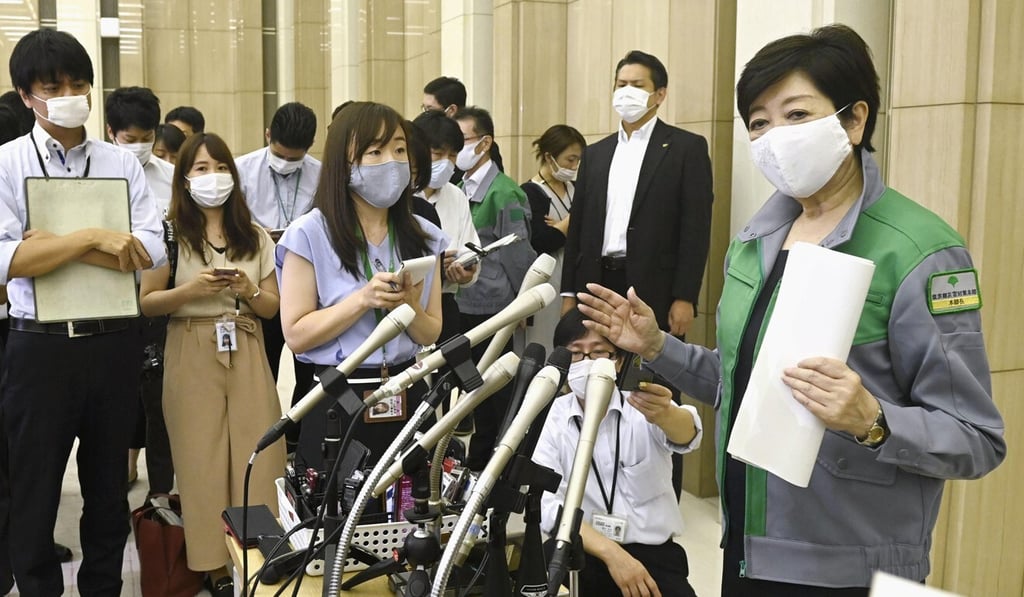Coronavirus: Tokyo on high alert as new clusters emerge outside nightlife hotspots
- Elsewhere in Asia, South Korea recorded 62 infections on Monday, including 43 imported cases
- In Indonesia, President Joko Widodo has sought to increase coronavirus testing by 50 per cent to 30,000 daily

The latest flare-up in coronavirus cases in Tokyo appears to have spread beyond nightclubs and known hotspot areas, as the Japanese capital braces for more infections after cases topped 200 for the fourth straight day on Sunday.
New outbreak clusters tied to a childcare centre, where about 22 children and teachers were confirmed to have the virus, and a theatre house where 30 people including actors and guests tested positive, were reported in Tokyo over the weekend, according to local media.
New daily infections in Japan have mostly been tied to the Tokyo area, but the surrounding prefectures of Saitama, Kanagawa, and Chiba are also starting to see increased reports of Covid-19.

Government officials have avoided calling for broader restrictions in response to the spread, saying the issue is localised and the medical system is not under strain. Speaking in Hokkaido on Saturday, Chief Secretary Yoshihide Suga called the infections a “Tokyo problem”, according to Japanese media.
Japan’s flare-up is part of a resurgence in cases across Asia from Hong Kong to Melbourne. Rather than resort to full-blown lockdowns, many are seeking targeted approaches to let their economies continue to recover. Countries around the globe are seeking to reopen their battered economies after an initial success with virus prevention efforts, only to wrestle with new clusters of infections.
Yasutoshi Nishimura, the minister in charge of the coronavirus response, urged Tokyo Governor Yuriko Koike over the weekend to consider imposing business restrictions on restaurants and bars that weren’t taking “thorough” measures against coronavirus.